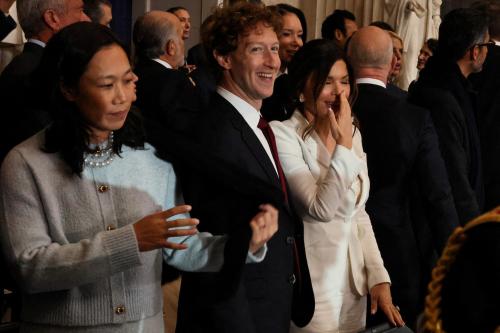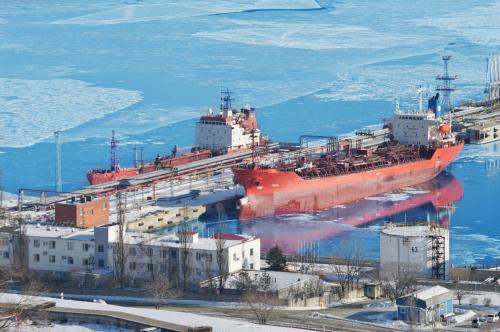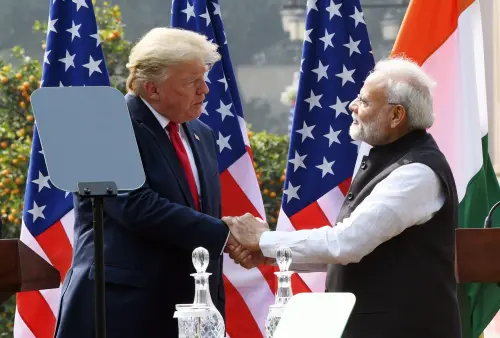Last week when the situation in Ukraine seemed to be spinning violently out of control, Brookings experts were watching and commenting. This week, Viktor Yanukovych has fled the country, new leaders are trying to take control in Kyiv, pro-Russia demonstrators are active in the Crimea region, and Russia has announced military maneuvers near its border with Ukraine. Through all of this, Brookings experts continue to offer insight about the situation.
Brookings President Strobe Talbott argues that Putin is taking a winner-take-all approach to Ukraine and the world.
perpetual East-West balancing act. #Russia not making things easy for new government in Kyiv. See http://t.co/TUhAusJRKR
— Steven Pifer (@steven_pifer) February 28, 2014
“Crimea is the flashpoint everybody needs to be watching.” — Steven Pifer, Brookings expert and former U.S. ambassador to Ukraine.
Yatseniuk says #Ukraine will sign EU association agrement and wants partnership with Russia. Good if Kyiv can find that balance.
— Steven Pifer (@steven_pifer) February 27, 2014
Pifer also published “Ukraine: A Tour of the Biggest Stumbling Blocks Ahead” in The National Interest:
Should the Kremlin decide to play true hardball, it might try the more dangerous game of encouraging separatist sentiment in eastern Ukraine or Crimea, home to much of the Russian Black Sea Fleet.
Kyiv will need to engage Moscow and explain that, while it pursues closer integration with the European Union, it also has a compelling interest in positive relations with Russia, including strong commercial links. A Ukraine with growing links to Europe and stable, constructive relations with Russia arguably should not pose a threat to the Kremlin’s interests, but few believe Moscow can be brought to such a view.
Managing these challenges will test the wisdom and political skill of even the most capable Ukrainian leaders. The United States and European Union should understand the depth of these tests—and the risks of failure. If the new government shows itself to be committed to building a more democratic state with a less corrupt and reformed economy, Washington and Brussels should look for ways to ease its burdens.
Pifer told Gulf News that “If the Russians choose to make life difficult for Kiev, they have lots of tools.”
They could raise the price of gas back to pre-December levels, they could boycott Ukrainian goods, they could even go so far as to shut off shipments of natural gas. … Putin is going to be tempted to use some of the pressure levers at his disposal to make life difficult for the new leaders. I suspect Russia will be part of the problem, not part of the solution.
Pifer also tweeted earlier in the week:
Putin’s decision to conduct readiness drill in Western Military District bordering #Ukraine spectacularly ill-timed.
— Steven Pifer (@steven_pifer) February 26, 2014
Ugly clashes in Simferopol. Pro-#Ukraine vs pro-Russia demonstrators. Kyiv should try to deescalate. Would be good if Moscow helped, but …
— Steven Pifer (@steven_pifer) February 26, 2014
Fiona Hill, director of the Center on the U.S. and Europe, appeared on PBS NewsHour to explore whether Russia will intervene. She said that the military exercises “do not necessarily mean that they are going to intervene” and the “pictures that we have seen that are most troubling … are in Crimea.” Watch below.
Hill also talked with the Global and Mail about Putin’s views of the west and what he sees as his nation’s role. “They’re definitely setting themselves up in opposition to the United States,” she said. “Being the leaders of a conservative coalition of countries who oppose gay rights and gay marriage and those who want to see less of a role for the church, more of a secular society.”
Clifford Gaddy, co-author with Hill of Mr. Putin: Operative in the Kremlin, spoke with Al Jazeera America about Putin’s approach:
Putin is always looking for lessons from history. So the idea that a precedent of street protests—or any sort of extraparliamentary action—is an infection that can spread is something he is taking very seriously.
I don’t think Putin looks at Ukraine as a prize to be won. He sees the events in Ukraine as instigated by the West, an orchestration by Europe and the U.S. to trap Russia into a situation where it’s forced to hurt itself. … My guess is that he doesn’t have a grand strategy for how to deal with Ukraine—he’s going to play this by ear, and be careful not to get lured into doing something counterproductive. If he’s forced into a more overt, coercive intervention, that will be a defeat for him.
Marvin Kalb asks “What Are the Russians Up To?“
Get more research and commentary
on Ukraine here
, and also visit the
Center on the United States and Europe
.
The Brookings Institution is committed to quality, independence, and impact.
We are supported by a diverse array of funders. In line with our values and policies, each Brookings publication represents the sole views of its author(s).



Commentary
More of What Brookings Scholars are Saying about Ukraine
February 27, 2014